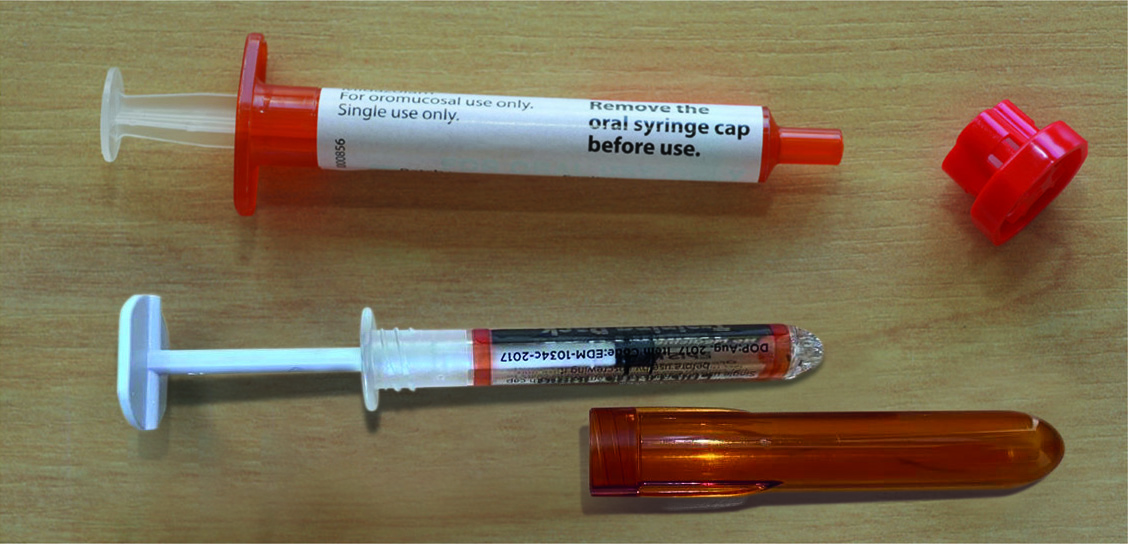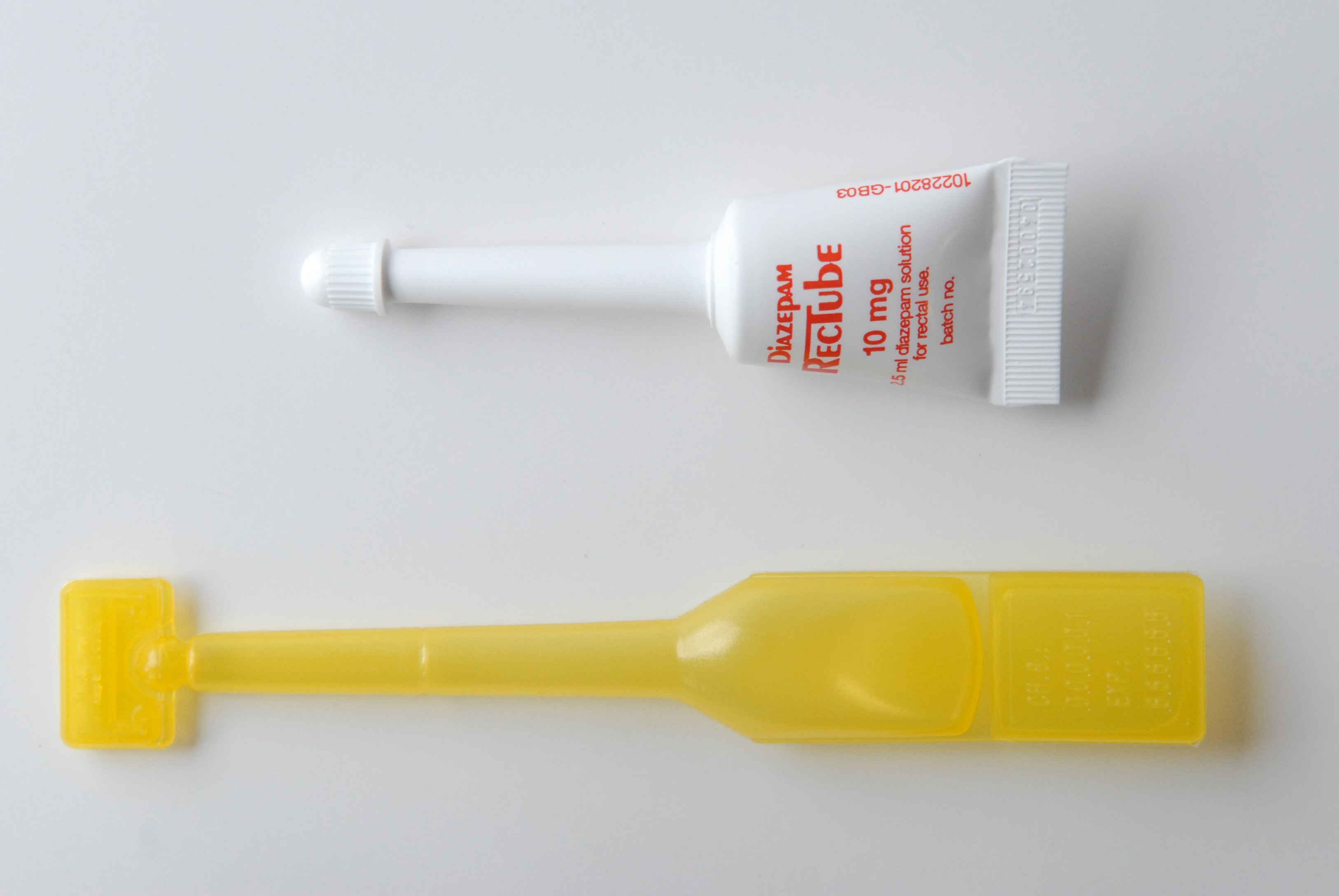Most people’s seizures last the same length of time each time they happen and usually stop by themselves. However, sometimes seizures do not stop or one seizure follows another without the person recovering in between. When a seizure goes on for 5 minutes or more it is called status epilepticus (or ‘status’ for short).
What is 'status'
The definition of status is a seizure or series of seizures that last for five minutes or more. Most seizures last for a short time (a few seconds or minutes) and stop on their own.
Status could also develop if a series of seizures (repeated seizures) happen so close together in time that the person cannot recover in between each seizure.
Status can develop in any type of seizure, for example, absence status (sometimes called ‘non-convulsive status’) and tonic clonic status (sometimes called ‘convulsive status’). Status during a tonic clonic (convulsive) seizure is a medical emergency and needs urgent treatment with emergency medication.
Non-convulsive status
Non-convulsive status can be difficult to diagnose because the features of the seizure can be quite subtle, or individual to the person having the seizure.
This type of status could be a prolonged absence (where the person goes blank and does not respond) or prolonged confusion (where the person behaves in a confused way, or their personality seems changed, and they are not behaving as usual).
Treatment for non-convulsive status is less urgent than for convulsive status. However, it may be treated with medication such as buccal midazolam or rectal diazepam.
Convulsive status
In convulsive status, a person has a tonic clonic seizure where their body goes stiff and then jerks and the seizure lasts for five minutes or more, or they have three or more convulsive seizures in 24 hours.
Convulsive status is a medical emergency. Emergency medication is prescribed to stop prolonged or repeated seizures before status develops.
Convulsive status is very serious. It is important that emergency medication is given as soon as it is clear that the seizure is not stopping.
The sooner a seizure is treated to stop status from developing, the more likely it is to reduce the risk of long-term effects on the person.
Why is convulsive status a medical emergency?
During the first few minutes of a prolonged convulsive seizure, the body has internal systems to deal with the seizure. This includes increasing blood flow to the brain. However, if the seizure continues, it can lead to hypoxia (low oxygen levels), hypertension (high blood pressure), or pulmonary oedema (excess fluid in the lungs). It can cause the heart, liver, or kidneys to fail. Ultimately it can cause permanent neurological damage and can be fatal.
What is emergency medication for epilepsy?
Emergency medications to treat prolonged or repeated seizures belong to a group of drugs called ‘benzodiazepines’. Benzodiazepines are used to treat or prevent status because they start to work quickly, they have a calming effect on the brain, and they relax the muscles of the body. Sometimes this medication is called ‘rescue medication.’
Benzodiazepines cause sedation and can affect breathing. It is important that the person is watched closely after having these drugs to check that they are recovering and breathing normally. Call for an ambulance if you are concerned about the person’s recovery, or if their seizures do not respond to the emergency treatment recommended in their protocol. See below for more about protocols.
Emergency medications are not the same as anti-seizure medications, (ASMs) which are taken every day to stop seizures from happening. Emergency medication is only given in specific situations. It can be used to stop a seizure from developing into status (before it becomes a medical emergency).
Types of emergency medication
Emergency medications used to prevent status in the community (outside of hospital) and given by a family member or carer, teacher, or care home staff, who have been trained to use it include:
- Buccal midazolam – given into the buccal cavity (the side of the mouth between the cheek and the gum).
- Rectal diazepam – given rectally (into the bottom).
Rectal paraldehyde - is sometimes prescribed for children. It can be helpful when someone can’t take benzodiazepines because of an allergy or bad reaction.
If someone has a prescription for emergency medication, they should have a written protocol (instructions), sometimes called an ‘individual emergency management plan’, that states when emergency medication should be given, for example, after five minutes.
For more information about protocols see below.
NICE guidelines
The National Institute for Health and Care Excellence (NICE) gives guidance to clinicians on treating medical conditions in England and Wales. The 2022 NICE guidelines for ‘Epilepsies in children, young people and adults’ say that:
- a benzodiazepine such as buccal midazolam should be given to treat status epilepticus, repeated or cluster seizures, and prolonged seizures in the community; and
- if the person does not already have one, a protocol should be drawn up after an episode of status epilepticus, repeated or cluster seizures, and prolonged seizures if there is concern that these may happen again.
The Scottish Intercollegiate Guidelines Network (SIGN) produces guidelines for Scotland.
Protocols for emergency medication
When a person is prescribed emergency medication, it is usually because they have had status, or a series of seizures, at least once.
Because status is a serious condition, and the medication to treat it needs to be given in a very specific way, it is important that each person has a protocol for their emergency medication. As seizures can vary from one person to another, even if they have the same type of seizure, it is important that the protocol is written specifically for that person and gives clear instructions about administering the medication. There may be special considerations for children or vulnerable adults such as those with a learning disability.
A protocol is usually written by the specialist, epilepsy nurse, or GP, with the person or their family and should be reviewed to make sure that they are still accurate and appropriate for the person. This is usually done every year, or more frequently if necessary. The protocol should be made available to everyone who is trained to give the medication. You can download a sample protocol here. (Protocol by kind permission of Veriton Pharma Ltd)
What should a protocol include?
A protocol should include:
- the date the protocol was created and a date to review it;
- the person’s name and contact details (to make sure that the right plan is used for the right person);
- contact details for the prescribing doctor, and those involved in agreeing to the plan and giving the emergency medication;
- what type of seizure or seizures the person has (including a description of what happens during the seizure so that someone can recognise when a seizure is happening);
- which seizures need emergency medication (as some people have more than one type of seizure but only need emergency medication for one particular type of seizure);
- at what point the emergency medication should be given (for example, if the seizure is still happening at five minutes);
- the type and dose of emergency medication prescribed (as this will vary from one person to another), and who is trained to give it;
- how the medication should be given (although emergency medication is often given in a standard way, any specific instructions for a person must be made clear in the plan);
- how to monitor the person’s recovery (as emergency medication can affect breathing, it is important that the person is carefully monitored while they recover); and
- what to do if the first dose of medication does not stop the seizure. This will usually include how long to wait before giving a second dose, or whether to call for an ambulance rather than giving another dose. In some cases, a second dose should never be given.
Buccal midazolam
Buccal midazolam is used to treat prolonged or repeated seizures in adults, children, and young people in the community. Different versions come in different strengths and are suitable for adults and children from 3 months old.
Different versions of buccal midazolam
Midazolam is the generic name of the active ingredient (the chemical part of the drug that works to treat the condition). All versions of buccal midazolam will have the same active ingredient. Brand names are used to identify the different versions made by
different companies.
Although different versions of buccal midazolam have the same active ingredient this does not mean that they are exactly the same.
The amount of active ingredient (the strength) may differ from one version to another, and it is essential that individuals are given the correct dose each time.
Other ingredients may also differ from one version to another. In some cases, this can affect how the drug is absorbed in the body and how it works. This is important with emergency medication because if one version of the drug works well for a person, another version may not work as well or in the same way for that person.
Whichever version or brand of buccal midazolam the person is given, if it works well for them, it is recommended that they are given the same version each time they get their prescription.
The prescription should have the specific version and strength of buccal midazolam written on it. Keeping to one version also helps ensure that the buccal midazolam is given in the same way each time, avoiding potential confusion. If you have any concerns or queries about prescriptions for buccal midazolam, you can talk to the prescribing doctor.
The dose of buccal midazolam
The right dose of buccal midazolam for an individual will be worked out by the prescribing doctor. They will consider the person’s weight. This is particularly important in children as they may need smaller doses than adults according to their weight.
The buccal cavity (the cheek)
Buccal midazolam is given into the buccal cavity. Many small blood vessels lie close to the surface of the inside of the cavity. Buccal midazolam is absorbed into the blood stream and travels to the brain, where it starts to work very quickly. The buccal cavity is between the cheek and the lower gum.
How is buccal midazolam dispensed?
Buccal midazolam is dispensed using a pre-filled dispenser. Pre-filled dispensers may come in a plastic container. The dose is shown on the dispenser, the plastic container or foil pack, and on the box. If any packaging containing the dispensers has been opened, or damaged, these should not be used. Each dispenser has the dose prescribed to be given for one treatment.
Examples of pre-filled dispensers. Colour and style may vary.

Rectal diazepam
Diazepam is often used to prevent status. It is given rectally (into the person's bottom) which means that it can be difficult to give and hard to protect the person's privacy and dignity while doing so.
Versions of rectal diazepam
All versions of rectal diazepam will have the same active ingredient. Brand names are used to identify the different versions made by different companies.
Although different versions of rectal diazepam have the same active ingredient this does not mean that they are exactly the same.
The amount of active ingredient (the strength) may differ from one version to another, and it is essential that someone gets the correct dose each time.
Whichever version or brand of rectal diazepam the person is given, if it works well for them, it is recommended that they stick with the same version each time they get their prescription. The prescription should have the specific version and strength of diazepam written on it. Keeping to one version also helps ensure that the diazepam is given in the same way each time, avoiding potential confusion. If you have any concerns or queries about prescriptions for rectal diazepam, you can talk to the prescribing doctor.
The dose of diazepam to use
The right dose of diazepam for an individual will be worked out by the prescribing doctor. They will take into account the person’s weight. This is particularly important in children as they may need smaller doses than adults according to their weight.
How is rectal diazepam dispensed?
Rectal diazepam comes in sealed pouches within a box. The box contains a leaflet with instructions about how to give rectal diazepam.
Within each pouch is a long-necked plastic tube with a cap on the end. The tubes come in different dose sizes, and this will be written both on the pouch and the tube.
Examples of rectal diazepam tubes. Colour and style may vary.

Training to give emergency medication
Giving emergency medication to someone while they are having a seizure can be difficult or daunting. This can be true whether you are giving it to a member of your family, a teacher giving it to a pupil, or a professional giving it to someone you support in residential care.
Emergency medication needs to be given safely and in a specific way so that it works best. It is important that anyone who gives emergency medication has training in how to give it.
Training courses usually include information about epilepsy, seizures, status, and emergency medication, and a session where you can practise giving ‘dummy’ medication. Having training is also a chance to talk through any questions or concerns you have, so that you feel confident in giving emergency medication.
Training may be available through the local authority or hospital, and the prescribing doctor may suggest where you can get this training. Certified training is also available from Epilepsy Society.
If you work in residential care, you may be asked to complete a training course. You will probably receive a ‘certificate of attendance’ for attending the course, not a ‘certificate of competence’. A certificate of competence can’t be given because you can’t demonstrate giving emergency medication in a real emergency. You can check this with the training provider before you book.
You may want to check the policies of your own workplace for information about giving emergency medication.
Epilepsy Society is grateful to Dr F J Rugg-Gunn, Consultant Neurologist and Honorary Associate Professor, Clinical Lead, Chalfont Centre for Epilepsy, who reviewed this information.
Information updated: September 2025. Review date: September 2027.
Download this information
For a printed copy contact our Helpline.

